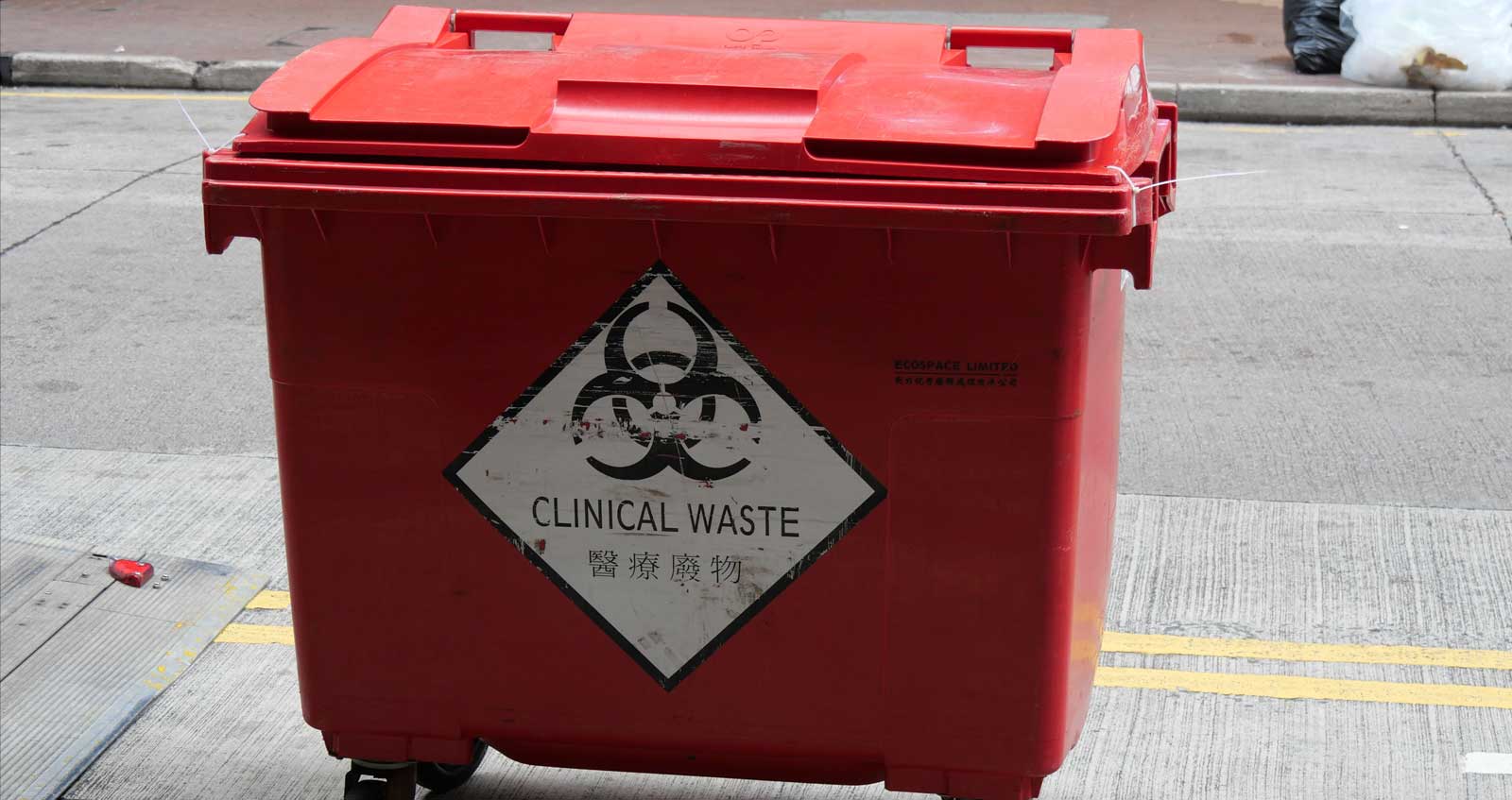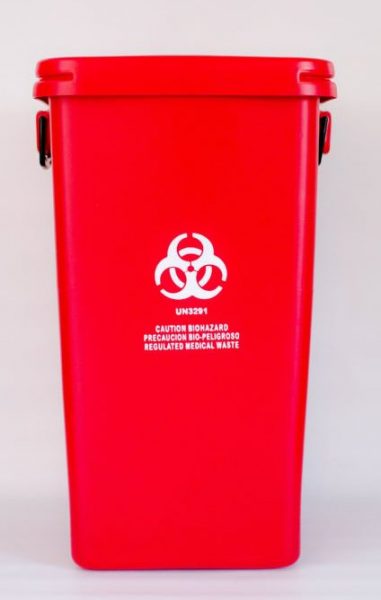Stay Ahead of Rules: Specialist Advice on Medical Garbage Disposal
In a globe where the medical care sector is regularly developing, it is essential for medical centers to stay in advance of policies when it comes to the appropriate disposal of clinical waste. From comprehending the various groups of medical waste to carrying out the right collection and partition methods, this conversation will certainly offer workable suggestions and useful understandings to assist facilities remain in advance of laws in the ever-changing landscape of medical waste disposal.
Understanding Clinical Waste Categories
Comprehending medical waste categories is important for correct disposal and administration in healthcare centers. Medical waste describes any waste produced by medical care tasks that might position a threat to public health or the environment. It is critical to categorize clinical waste accurately to ensure its secure handling, treatment, disposal, and transportation.
There are a number of categories of medical waste that health care centers require to be acquainted with. One of the most common categories include infectious waste, pathological waste, sharps waste, pharmaceutical waste, and chemical waste. Each category has specific guidelines and policies for its appropriate management and disposal.
Pathological waste refers to human tissues, body organs, or body components that call for unique handling and disposal. Pharmaceutical waste consists of expired, unused, or polluted drugs that require cautious handling and disposal.
Remaining Up-To-Date With Regulatory Modifications
Remaining present with governing modifications is critical for health care centers to make certain conformity and appropriate management of medical waste disposal. medical waste removal service. With policies frequently progressing, it is crucial for medical care facilities to remain updated to prevent penalties, fines, and potential harm to the atmosphere and public health
To remain ahead of regulatory adjustments, health care facilities need to develop a system for tracking and monitoring updates. This can be done by registering for regulative newsletters, going to workshops and meetings, and actively participating in market associations. In addition, facilities need to assign a personnel or group accountable for staying notified and disseminating info to relevant stakeholders.
Routine communication with regulative agencies is likewise important. Medical care facilities must develop connections with neighborhood, state, and federal firms to ensure they are mindful of any adjustments in policies that might impact their waste monitoring practices. This can be done with regular meetings, engagement in public comment periods, and aggressive interaction with governing agencies.
Moreover, healthcare centers ought to consider partnering with waste monitoring business that specialize in clinical waste disposal (medical waste disposal services with WasteX). These firms are frequently skilled in the most up to date regulations and can offer support and assistance to ensure compliance
Executing Appropriate Collection and Partition Approaches
To effectively take care of medical waste disposal, healthcare facilities should establish appropriate collection and segregation techniques according to regulative standards. Carrying out these approaches makes certain the secure handling and disposal of possibly unsafe products, shields the setting, and decreases the threat of injuries and infections to medical care employees and the public.
Appropriate collection and segregation methods involve using marked containers and classifying systems. Medical care facilities ought to offer clearly classified containers for various sorts of medical waste, such as sharps, infectious waste, pharmaceutical waste, and non-hazardous waste. These containers need to be color-coded and plainly significant to avoid confusion and advertise very easy recognition.
Furthermore, health care facilities need to educate their personnel on the correct treatments for gathering and segregating clinical waste. This consists of educating them on the various kinds of waste, the suitable containers to use, and the relevance of complying with guidelines and guidelines. Normal training sessions and refresher courses need to be carried out to click for more ensure that employee continue to be updated on ideal methods.
Furthermore, medical care facilities must establish a system for normal collection and disposal of medical waste. This might entail partnering with certified waste monitoring business that concentrate on medical garbage disposal. These business will certainly guarantee that the accumulated waste is carried and taken care of in conformity with governing needs.
Selecting the Right Disposal Approaches

Incineration is just one of the most common and effective techniques for disposing of certain kinds of medical waste, such as pathological waste and sharps. It includes the controlled combustion of waste at heats, minimizing it to ash. Incineration can launch unsafe toxins right into the air and add to air contamination.

Chemical therapy involves the use of chemicals to reduce the effects of the waste and sanitize. Microwave therapy makes use of microwave power to warmth and decontaminate the waste.
Ensuring Compliance Through Documentation and Training
After thoroughly thinking about the proper disposal approaches for clinical waste, health care centers need to make sure conformity with guidelines and lessen ecological effect by carrying out efficient paperwork and training procedures. This step is crucial in maintaining a lasting and secure atmosphere for both healthcare workers and the public.

Healthcare workers who handle clinical waste must obtain ideal training on waste partition, handling, and disposal treatments. By providing comprehensive training, healthcare centers can encourage their team to make enlightened choices and minimize the danger of inappropriate waste disposal.
Verdict
In verdict, remaining in advance of regulations in clinical garbage disposal is crucial for healthcare centers. medical waste removal. Understanding the various groups of clinical waste, staying updated with governing modifications, carrying out you could try here appropriate collection and segregation approaches, selecting the suitable disposal methods, and ensuring conformity with documentation and training are all important actions. By complying with these guidelines, health care organizations can effectively dispose and take care of of medical waste in a accountable and safe way
From understanding the various classifications of medical waste to carrying out the best collection and partition techniques, this conversation will provide workable tips and beneficial insights to aid facilities remain ahead of guidelines in the ever-changing landscape of medical waste disposal. - medical waste disposal services with WasteX
The most typical groups consist of infectious waste, pathological waste, sharps waste, pharmaceutical waste, and chemical waste. Health care centers need to provide clearly labeled containers for different types of medical waste, such as sharps, contagious waste, pharmaceutical waste, and non-hazardous waste. Health care centers must develop a thorough system to record and track all aspects of medical waste disposal, including types of waste generated, quantities, and disposal methods used. Healthcare workers that handle medical waste should receive suitable training on waste segregation, managing, and disposal treatments.